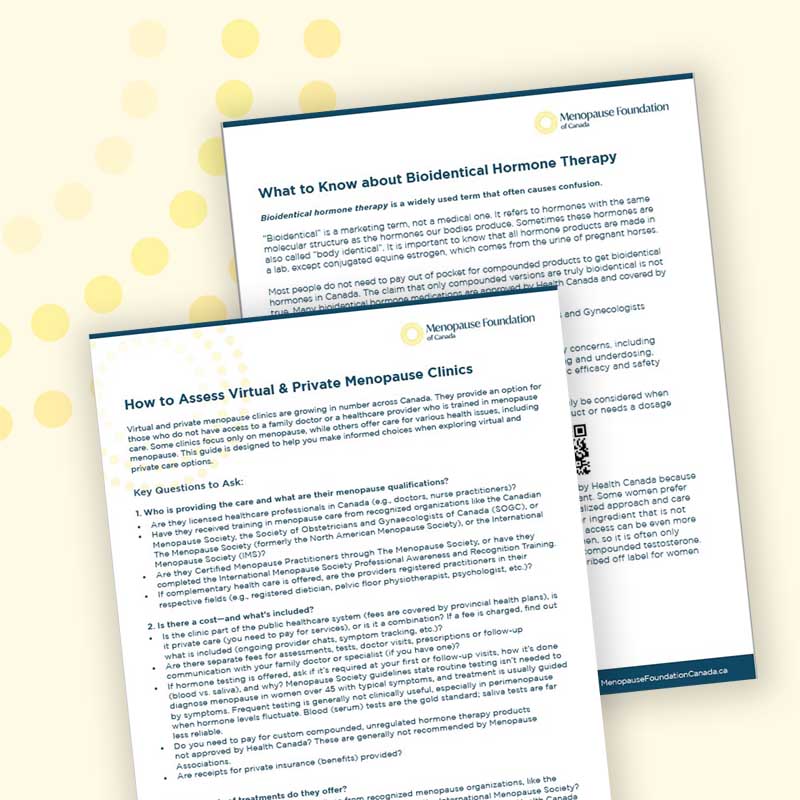Before You Go to Your Health Care Practitioner
Step 1 – TRACK Your Symptoms. We know that our health care system is stretched and that family physicians and other health care providers have busy practices. To make the most of your appointment, you need to come prepared with information to provide your health care provider with a clear picture of your experience. Tracking symptoms that could be related to hormonal change is an important first step. Your health care provider may need to rule out other issues. Heart palpitations, for example, may represent a heart issue that needs to be reviewed or may simply be a symptom of hormonal change.
The following tools can you help you track your symptoms:
Describing your symptoms and concerns
Your doctor will usually begin the appointment by asking what has brought you to see them. This is the time to tell them what symptoms you are experiencing and how they are impacting your life.
You may wish to begin by saying that you have some symptoms that you think are related to menopause that you want help with. Then share what you tracked in Step 1. Use “I statements” that explain the symptom and how it makes you feel, such as:

Your healthcare provider will likely respond with some potential next steps. If they say they are not experienced in dealing with menopause or if they offer advice that does not align with the latest guidelines for evidence-based care, this is the time to speak up and offer the additional resources that you have brought with you.

Here are some bridging statements you can use when sharing articles with your doctor:
Your health care provider may wish to take the information away to review it. If so, don’t leave the appointment until you have discussed booking a follow-up appointment.
If your health care provider is not able to offer the support that you need, it is appropriate to see another practitioner. Find a menopause specialist here. If the menopause specialist you want to see is a gynecologist, you will need to ask your doctor for a referral.
How to ask for a referral:

Virtual and Private Menopause Clinics:
Virtual and private menopause clinics are growing in number across Canada. They provide an option for those who do not have access to a family doctor or a healthcare provider who is trained in menopause care. Some clinics focus only on menopause, while others offer care for various health issues, including menopause. Read our guide on How to Assess Virtual & Private Menopause Clinics to help you make informed choices about virtual and private menopause clinics. It also includes a section on understanding bioidentical hormone therapy, which some clinics prescribe.
Remember, you deserve to feel healthy. Advocate for the care you need.
“I have been treating menopausal women for decades and know the serious toll symptoms can have on their health and quality of life. Menopause is seen as something women must endure, like a woman’s burden. This is unacceptable. Women deserve to feel healthy and they should not suffer in silence. There is preventative care, lifestyle choices, and safe and effective treatment options to help women thrive during their menopausal years.”
~Dr. Wendy Wolfman, MD, FRCS(C), FACOG, NCMP, president of the Canadian Menopause Society and a member of the Medical Advisory Board of the Menopause Foundation of Canada



